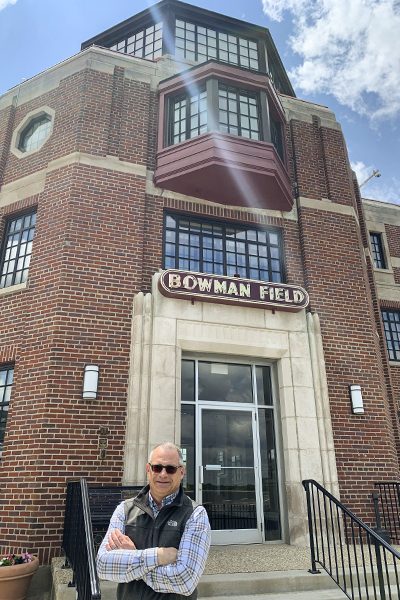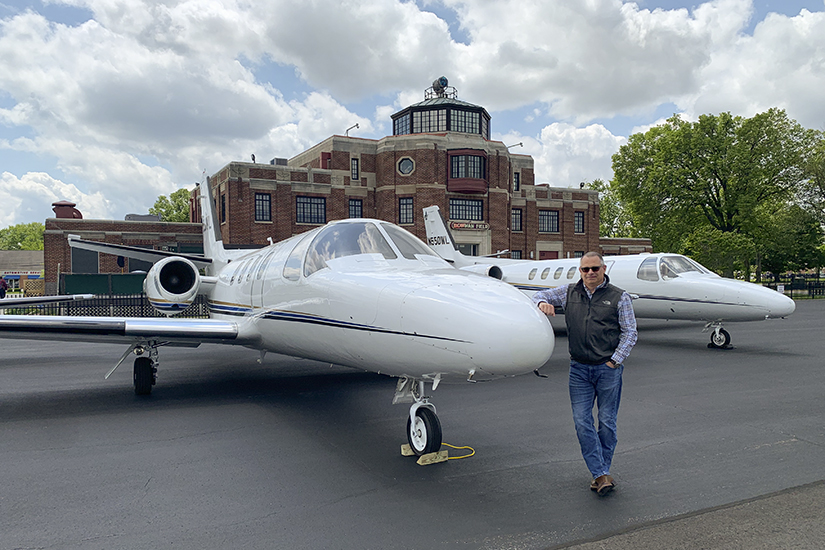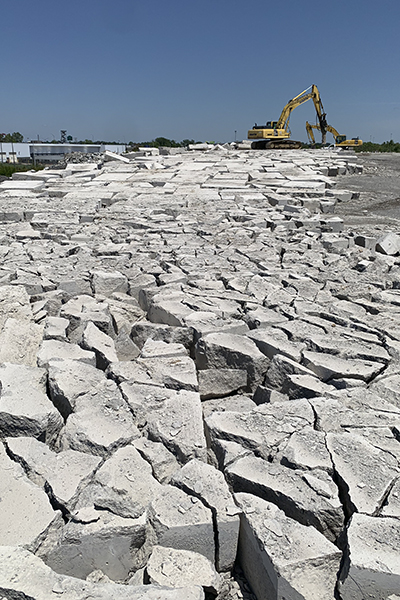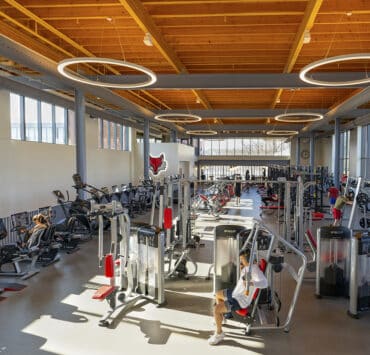|
Getting your Trinity Audio player ready...
|
With a $155 million passenger terminal renovation underway, along with construction of a new UPS aircraft maintenance facility, rental car parking modernization, and ongoing noise mitigation projects, Brian Sinnwell is being tested in many ways at the Louisville Regional Airport Authority.

The vice president of planning and facilities joined the authority nearly eight years ago, but the next few years promise to be busier than ever. The passenger terminal upgrade at Muhammad Ali International Airport includes a geothermal heating system with more than 600 wells, which is believed to be one of the largest such installations ever. The proposed new UPS development will support the busiest air freight location in North America. Plus, there are the usual ongoing maintenance and rehabilitation projects, such as runway and taxiway reconstruction projects.
A civil engineer by training, Sinnwell puts his primary skills to work while also delving into architecture, environmental testing and mitigation, airport planning, construction management, and sustainability policymaking. It’s a stimulating environment that requires the ability to shift quickly from project to project throughout the day—and takes a cool head to manage.
The recent spate of large projects, while challenging, provide enviable opportunities for professional growth and fulfillment, Sinnwell says. “These are all the things somebody in my position would love to work on.”
With UPS being the airport’s largest tenant and source of revenue, Sinnwell and his team must ensure that the global package delivery giant can operate efficiently every day no matter what construction and maintenance work needs to be done. “We always have to be mindful of UPS’s schedule,” he says. “We can’t just close something down to fix it.”
That goes for the entire airport, including the extensive passenger terminal upgrade. Phasing construction work is always a critical challenge, as flight schedules must be maintained. Much of the work will be focused on replacing vital MEP (mechanical, electrical, and plumbing) infrastructure and includes jetways, moving walkways, and upgrades to lighting.
The replacement mechanical systems will improve energy efficiency, but the biggest efficiency impact will come from a wholesale upgrade of HVAC systems built upon a new, vast geothermal infrastructure. More than 600 wells, drilled to a depth of 500 feet, will help to heat and cool the building. That part of the process will take about a year. “We’re not sure where the geothermal system will rank in size compared to other airports, but we know we will be leaders and that the project will be a showcase,” Sinnwell says.
The system saves energy on cooling by using the stable 50-degree temperature of the earth to cool water that is drawn inside. Blowers pass air over pipes containing chilled water to cool the building. In winter, cold air is drawn from the building and transferred underground via water through the same pipes.

The estimated total cost for the HVAC upgrade, including geothermal, is a gaudy $75 million especially challenging in the volatile pricing world of the construction market. The payback will be considerable, though. The airport’s natural gas usage is projected to drop from 10.7 million cubic feet to 1.6 million cubic feet per year after the geothermal system is completed. Savings on electric use alone is expected to surpass $400,000 annually.
The UPS project was predicated by the shipping company’s increasing package delivery volume that sparked it to purchase larger planes. The Louisville facility on average can process some 415,000 packages per hour. The airport authority’s primary responsibility is to construct an access taxiway to serve the new maintenance facility.
Sinnwell oversees the design of this feature, and assisted UPS in securing permits, developing stormwater controls, and supplying electrical infrastructure. He’ll also have to coordinate with UPS and their contractors to schedule construction activity to get the work done efficiently while minimizing the impact on business activities.
A big component of Sinnwell’s duties involves hiring and coordinating the efforts of numerous external consultants and contractors. While technical capability is a must, the choice of whom to hire often depends on superior soft skills. “There are a lot of capable engineers, but it comes down to building a bond—to team building,” Sinnwell says.

The airport generates thousands of jobs and is a prized asset for the Louisville region. Air traffic, though, creates noise that impacts residents living near the facility. Striving to be good neighbors, the airport has an ongoing program to provide sound insulation for those most affected, and Sinnwell manages that effort.
About 500 homes have been outfitted with triple-paned windows and storm doors to make home interiors quieter. Contractors measure decibel levels before and after this work to assess its effectiveness. Another 300 homes will soon receive this service, largely financed by the Federal Aviation Administration.
Sinnwell also has oversight responsibility for environmental programs such as stormwater discharge water quality testing and air quality monitoring. “We want to expand our sustainability focus areas and explore new initiatives,” he points out, adding that the authority is developing a new sustainability management plan. It will develop new targets and maintenance plans along a host of environmental metrics to enhance its measurable goals and decision-making framework.
As if all that weren’t enough, Sinnwell is also working on a new comprehensive planning document for the authority’s other airport: Bowman Field, a general aviation facility that opened in 1919. The 426-acre site includes 17 buildings—notably the historic Art Deco Terminal Building that was built in 1929. This preservation program seeks to preserve the airport while continuing to be a good neighbor. Part of the plan is to preserve that administration building, consider carefully planned future development, and beautify the grounds.
Indeed, there are no dull days for Sinnwell, and that’s how he likes it.


